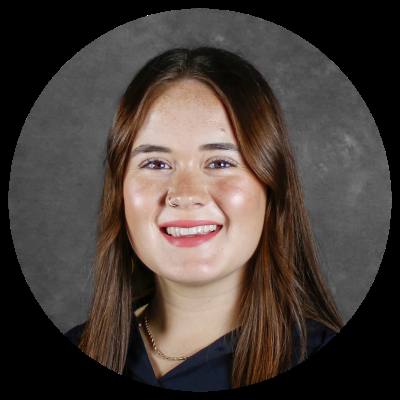Each nonprofit may use its grant to employ a policy fellow for two years to assist the organization in furthering its policy and advocacy efforts across the state. Fellows will receive training at the Hogg Mental Health Policy Academy, including a mentor, networking opportunities and attending a weeklong program in Washington, D.C. The grants cover 95% of the policy fellow’s salary, all fringe benefits, a stipend for their mentor plus other costs.
“The overall goal of the program is to build that workforce of advocates that are advocating for mental health or substance use policy initiatives in Texas,” said Shannon Hoffman, Hogg Foundation for Mental Health policy program specialist.
Five of the selected nonprofits will receive policy fellows, those who have recently graduated from schools in social work, law, public health, public policy or related fields. The other five will receive fellows with lived mental health or substance use experience, known as peer policy fellows.
“The goal of that track is to make sure that individuals who have been directly impacted are able to be at the table and really be a part of that change that's being made,” Hoffman said about the peer policy fellows.
Fellowship grants have been awarded to nonprofits in Austin, El Paso, Houston, Dallas, Waco and Elgin, five of which are in Austin, including the Texas Harm Reduction Alliance.
The Young Invincibles, a national nonprofit dedicated to elevating the voices of young people in politics, will use the funding for its Texas branch to focus on analyzing and addressing the mental illness experiences of college students, said Aurora Harris, Young Invincibles' southern regional director.
“We're excited to be able to destigmatize this issue,” Harris said. “We really just want to recognize the unique mental health challenges that Black, Indigenous and people of color, and LGBTQ youth face and how we as a group of young people can come together and make change.”
The program starts July 1 and is timed to give fellows experience advocating for their organizations’ goals in the 2023 legislative session, Hoffman said.
“There are so many competing priorities in Texas,” Hoffman said. “We know often mental health and substance use are still heavily stigmatized, so we definitely want to be able to have a voice at the Capitol.”
According to a 2022 report from Mental Health America, Texas has the fourth highest prevalence of mental illness but the lowest level of access to mental health care out of every state in the U.S.
Hoffman, who was a policy fellow for the Hogg Foundation for Mental Health from 2018-20, said many of the fellows have gone on to assume full-time roles within the foundation or other organizations.
“It was just a really powerful experience to see and be involved in,” Hoffman said about her fellowship. “It's just incredible to see the opportunity that the fellowship provides.”
The Hogg Foundation for Mental Health was founded by The University of Texas in 1940 and is said to be the first private foundation solely committed to mental health causes. The Mental Health Policy Academy and policy fellowship program began in 2010 and was expanded to include the peer policy fellowships in 2016.





